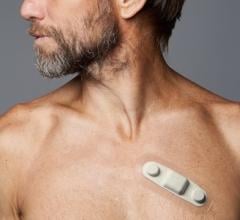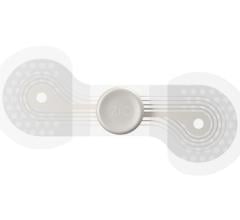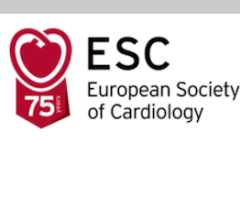
The Linq II implantable cardiac monitor (ICM) system delivers improved device longevity compared to other ICMs and enhanced accuracy to correctly detect abnormal heart rhythms, simplifying the diagnosis and monitoring of patients. The new devices allows continuous cardiac monitoring for up to 4.5 years.
July 7, 2020 – Medtronic announced it received U.S. Food and Drug Administration (FDA) clearance and European CE mark approval for its Linq II insertable cardiac monitor (ICM) with remote programming, which enables clinicians to optimize device settings without the need for patients to return to the office or hospital. The Linq II system also delivers improved device longevity compared to other ICMs and enhanced accuracy to correctly detect abnormal heart rhythms, simplifying the diagnosis and monitoring of patients. The new devices allows continuous cardiac monitoring for 4.5 years using nominal settings.[1]
Linq II is a small (one-third the size of a AAA battery), wireless ICM for patients with abnormal heart rhythms who experience infrequent symptoms including dizziness, palpitations, syncope (fainting) and chest pain, thereby requiring long-term monitoring or ongoing management. The device will be commercially available in the U.S. and Europe later this summer.
“In the current COVID-19 environment, the Linq II system offers patients a seamless way to experience ongoing connectivity between their device and their physician, while reducing the need for in-office visits,” said Rob Kowal, M.D., Ph.D., chief medical officer of the Cardiac Rhythm and Heart Failure division, which is part of the Cardiac and Vascular Group at Medtronic. “Linq II gives physicians actionable data to help diagnose underlying heart conditions and define treatment protocols for patients with atrial fibrillation (AF) or other abnormal heart rhythms.”
The Linq II device incorporates many of the features of Linq with TruRhythm plus improvements that differentiate the device from other ICMs:
• Accuracy and Streamlined Workflows: The Linq II device has the lowest published rates of AF false detections compared to previous ICMs.[2-5] It also has an industry exclusive premature ventricular contraction (PVC) detector to help with patient diagnosis; PVCs are extra, abnormal heartbeats that begin in the ventricles, and disrupt the heart rhythm. Additionally, clinicians spend 33 percent less time reviewing ICM transmissions,[6] resulting in potential office efficiencies and reduced costs due to more streamlined workflows.
• Remote Programming: The Linq II ICM offers remote programming, which reduces the need for patients to come into the office to have their device settings adjusted – a benefit for both patients and physicians, especially during the current COVID-19 pandemic.
• Remote Patient Management: Patients with the Linq II ICM can choose one of two monitoring options to fit their lifestyles and increase remote monitoring compliance, potentially leading to improved patient outcomes.
• Patients can use their smartphones to automatically transfer device data via the MyCareLink Heart mobile app using BlueSync technology that
enables secure communication via Bluetooth.
• Patients who are unable or prefer not to use a cell phone can transmit device data with the MyCareLink Relay Home Communicator.
• Increased Longevity: The Linq II device offers an extended duration of continuous monitoring at 4.5 years using nominal settings.[1] Continuous monitoring gives physicians greater insights into patient data, aids in diagnoses and helps them manage chronic cardiac arrhythmias.
For more information: www.medtronic.com
References:
1. Linq II Clinician Manual. M974764A001.
2 BiotronikBioMonitor 2 Technical Manual. 2017.
3. NölkerG, et al. J Cardiovasc Electrophysiol. 2016;27:1403-1410.
4. Confirm Rx ICM DM3500 FDA Clearance Letter. 2017.
5. PürerfellnerH, et al. Europace. 2018;20:f321-f328
6. Alert Analysis for Linq II with TruRhythm and Linq II, Medtronic data on file, 2020.


 December 19, 2025
December 19, 2025 









